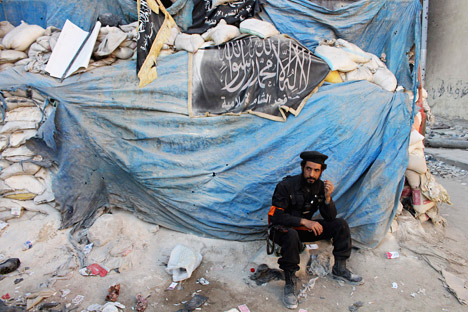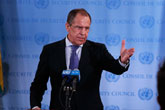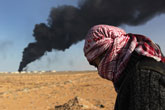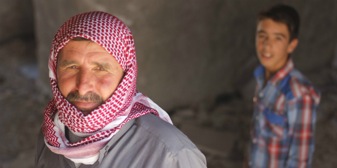Russia says ‘Friends of Syria’ obstructing Geneva 2

The Geneva 2 conference still remains under question. Source: Reuters
The document ratified under the “Friends of Syria” meeting seeks to undermine the Geneva 2 peace conference and predetermine its results, says Alexander Lukashevich, official representative of the Russian Ministry of Foreign Affairs.
“This is a poorly-concealed threat to return to the scenario of military force,” he said. According to Lukashevich, the “London document” serves the objective of provoking Damascus, so as to undermine Geneva 2 and shift responsibility from the opposition to the Syrian authorities.
“We believe that Syria’s National Coalition should participate in the negotiations, while the parameters of this participation should be commensurate with their influence in Syrian society and its role not only abroad but, above all, in Syria. There are no grounds to say that the ‘coalition’ is the ‘only legal representative’ of the Syrian people, or even of the entire opposition,” according to the official opinion of Russia’s Ministry of Foreign Affairs, as posted on its website.
As a reminder, in London, representatives of the opposition discussed with the so-called Friends of Syria group the prospects for convening the Geneva 2 international conference. The opponents of Bashar Assad have stated that they would not participate in negotiations unless the issue of Bashar’s removal from the presidency is discussed.
Eschewing the conference was the Syrian National Council (SNC), part of the National Coalition of opposition and revolutionary forces. The task of involving all influential Syrian opposition groups in the peace talks was assigned to the United States. After the SNC decision, Russian diplomats seized the chance to lambaste their American colleagues as ineffectual.
“Our partners assured us they would gather everyone to participate in the conference. Once again, my colleague John Kerry recently confirmed that they were actively working on this with the result forthcoming. But the result has yet to materialize,” said Russian Foreign Minister Sergei Lavrov.
Meanwhile, Russia’s task was to entice Damascus officials into negotiating. According to the Ministry of Foreign Affairs, they succeeded in their task, and members of the Syrian government are ready to arrive in Geneva as soon as possible
According to Boris Dolgov, senior research worker at the Center for Oriental Studies under the Russian Academy of Sciences Eastern Institute, much in the Geneva 2 situation depends upon the West’s position.
Related:

Russia criticizes results of London diplomatic meeting on Syria
Russia to propose India's name for Geneva II Syria talks- report
“If the Western countries supporting the opposition could compel the opposition to negotiate, presenting the ultimatum to otherwise cut financial support and the supply of arms, this would be a step toward starting the political process. But the West will unlikely do so,” the expert said in an interview with Gazeta.ru.
According to Dolgov, other options also exist. “One of these: If the armed opposition balks at a ceasefire and negotiations, a request can be filed with the U.N. to acknowledge the armed groups stoking the battle as terrorists and make a decision on neutralizing them. If the Western partners agree to this, light will appear in the tunnel,” said Dolgov.
Despite the dithering, Moscow hopes the conference will take place. According to a source at Russia’s Ministry of Foreign Affairs cited by Kommersant, it should be held “as soon as possible.”
“A political roadmap for regulating Syria must be immediately developed. And, upon ratification, everything else is to be cast aside: They should rally the forces and 'burn out' the terrorists already too well-entrenched in Syria, while they can still be denied overtaking the government,” said the source.
The Russian media notes that, with one month to go, the Geneva 2 conference remains under question. Neither the schedule nor participants have been announced. And while the main obstacle was recently thought to be the opposition’s foot-dragging, President Assad is now causing skepticism.
Meanwhile, it appears the U.S. has ruled out armed intervention in Syria, at least in the short-term. The heads of the U.S. Navy decided to reduce the number of battleships near the Syrian coast, returning them to base.
As explained by Admr. Jonathan Greenert, the battleship contingent led by the Nimitz aircraft carrier has carried out its duty and will return to base in Bremerton, Washington. As a result, the U.S. will retain only three warships in the eastern Mediterranean — the destroyers Stout and Ramage and the cruiser Monterrey.
Based on materials from Kommersant, Gazeta.ru, ITAR-TASS.
All rights reserved by Rossiyskaya Gazeta.
Subscribe
to our newsletter!
Get the week's best stories straight to your inbox

